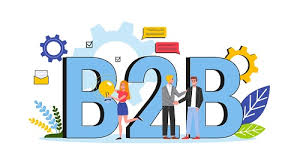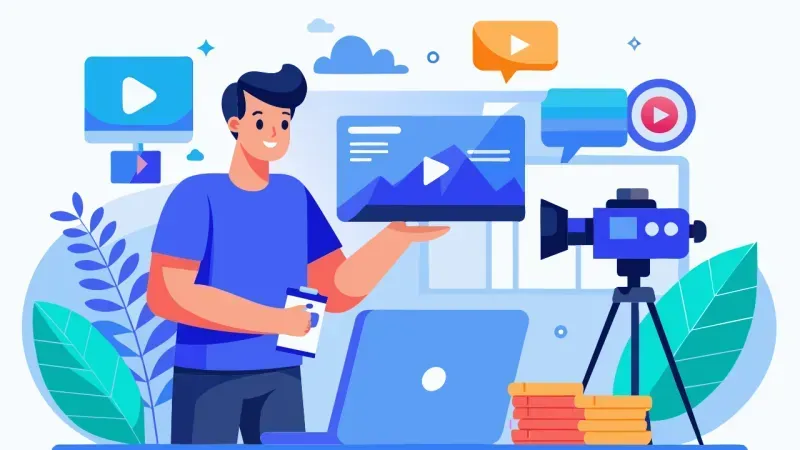Top AI Trends in SEO 2025

Table of Contents
Introduction
AI-Driven Content Creation and Optimization
Voice Search and Conversational AI
Predictive Search and User Intent Modeling
AI in Visual and Video SEO
Automation of Technical SEO Audits
Personalization and Hyperlocal Targeting
AI-Powered SEO Analytics and Forecasting
Ethical AI and Search Transparency
Conclusion
1. Introduction
As we step into 2025, artificial intelligence (AI) continues to redefine how we interact with digital technologies, especially in the realm of Search Engine Optimization (SEO). Search engines like Google are evolving at an extraordinary pace, thanks to breakthroughs in natural language processing (NLP), machine learning (ML), and large language models (LLMs). These advancements are not only reshaping how search engines rank content but also how users discover and engage with it.
For businesses and marketers, keeping pace with AI-driven SEO trends is not just beneficial—it’s essential. This article explores the top AI trends poised to dominate the SEO landscape in 2025, helping digital professionals stay ahead in an increasingly competitive ecosystem.
2. AI-Driven Content Creation and Optimization
AI-powered tools like ChatGPT, Jasper, and Copy.ai have matured significantly, enabling marketers to generate SEO-friendly content at scale. In 2025, these tools are not just assisting with content creation—they’re optimizing for tone, readability, relevance, and even search intent.
AI tools are now capable of:
Identifying content gaps
Performing topic clustering
Suggesting semantic keywords
Ensuring on-page optimization based on search engine guidelines
Google’s focus on Helpful Content Updates means AI-assisted writing must prioritize human-centric value. Integrating insights from tools like Surfer SEO or Clearscope can ensure that content aligns with user needs and intent, rather than simply stuffing keywords.
To understand why content (and SEO) still matter, explore this blog post on the importance of SEO.
3. Voice Search and Conversational AI
With the widespread adoption of voice-enabled devices and virtual assistants, voice search is becoming more integral to SEO strategies. AI’s advancements in speech recognition and NLP allow users to make natural language queries like, “What’s the best local marketing agency near me?” or “How can I improve my SEO in 2025?”
In response, SEO professionals are shifting toward:
Long-tail and question-based keywords
Featured snippet optimization
Structuring content in a conversational and concise format
Optimizing for voice search means understanding context, not just keywords. AI enables that contextual understanding at scale.
4. Predictive Search and User Intent Modeling
AI models can now anticipate what users are likely to search next based on previous behavior. Google Discover and Bing AI-powered search results increasingly rely on predictive analytics. In 2025, we expect a surge in AI-powered personalization that understands nuanced user intent.
This shift calls for a move beyond generic keyword targeting to:
Building topic clusters around user journeys
Creating content that answers latent queries
Using AI-based behavioral data to map search funnels
Understanding and predicting intent, rather than reacting to it, is becoming the new norm.
5. AI in Visual and Video SEO
Visual search and video content are dominating user attention in 2025. With AI’s help, search engines can now analyze image and video content more effectively through technologies like image recognition, object detection, and closed-caption indexing.
Marketers need to:
Optimize image alt-text using AI insights
Include keyword-rich video transcriptions
Leverage AI tools to tag and organize media for better search visibility
Platforms like Pinterest Lens and Google Lens are increasing the importance of visual SEO, and AI is the key to unlocking its potential.
6. Automation of Technical SEO Audits
Technical SEO remains foundational, but AI is revolutionizing how audits are conducted. Rather than relying on periodic manual checks, AI-driven SEO tools provide real-time insights into:
Crawlability issues
Page speed optimization
Structured data implementation
Mobile usability
Tools like Screaming Frog and SEMrush now integrate AI modules to detect anomalies and suggest automatic fixes. This reduces turnaround time and enhances site health consistently.
7. Personalization and Hyperlocal Targeting
AI’s ability to analyze hyperlocal data is reshaping local SEO strategies. With users expecting personalized experiences, AI helps marketers tailor content, offers, and messaging based on location, browsing behavior, and preferences.
Key AI applications include:
Dynamic content based on geo-targeting
AI-generated local landing pages
Automated review and reputation management
This trend is especially critical for small businesses and multi-location brands aiming to improve local discoverability.
8. AI-Powered SEO Analytics and Forecasting
Traditional analytics provide a retrospective view. AI enables predictive analytics that forecasts rankings, traffic patterns, and campaign performance. Platforms like Google’s Performance Max and Looker Studio increasingly rely on AI for dynamic attribution modeling and trend forecasting.
Benefits include:
Predictive keyword performance
ROI estimation across channels
Proactive identification of ranking drops
In 2025, successful SEO strategies are data-driven and AI-enhanced, giving marketers the ability to course-correct in real-time.
9. Ethical AI and Search Transparency
With AI’s growing influence, ethical considerations in SEO are gaining attention. Google’s increased emphasis on EEAT (Experience, Expertise, Authoritativeness, and Trustworthiness) aligns with a need for transparent, unbiased, and factual content.
AI tools are now being scrutinized for:
Data sourcing credibility
Algorithmic bias
Content authenticity
Marketers must ensure that AI-generated content adheres to ethical standards, especially in regulated industries like healthcare, finance, and legal services.
10. Conclusion
The intersection of AI and SEO in 2025 represents a pivotal evolution—from reactive optimization to proactive, intelligent strategy execution. AI empowers marketers to deliver precise, personalized, and predictive SEO campaigns that align with how users interact with digital content today.
As the algorithms get smarter, so must our strategies. Whether it’s optimizing for voice, leveraging predictive analytics, or ensuring ethical AI usage, staying updated on these trends will be critical for long-term SEO success.
To dive deeper into how SEO continues to play a vital role in digital marketing, don’t miss our in-depth blog on why SEO is important.
If you're looking to integrate advanced AI strategies into your SEO campaigns, explore our specialized Search Engine Optimization services at Markiverse.
Note: IndiBlogHub features both user-submitted and editorial content. We do not verify third-party contributions. Read our Disclaimer and Privacy Policyfor details.







